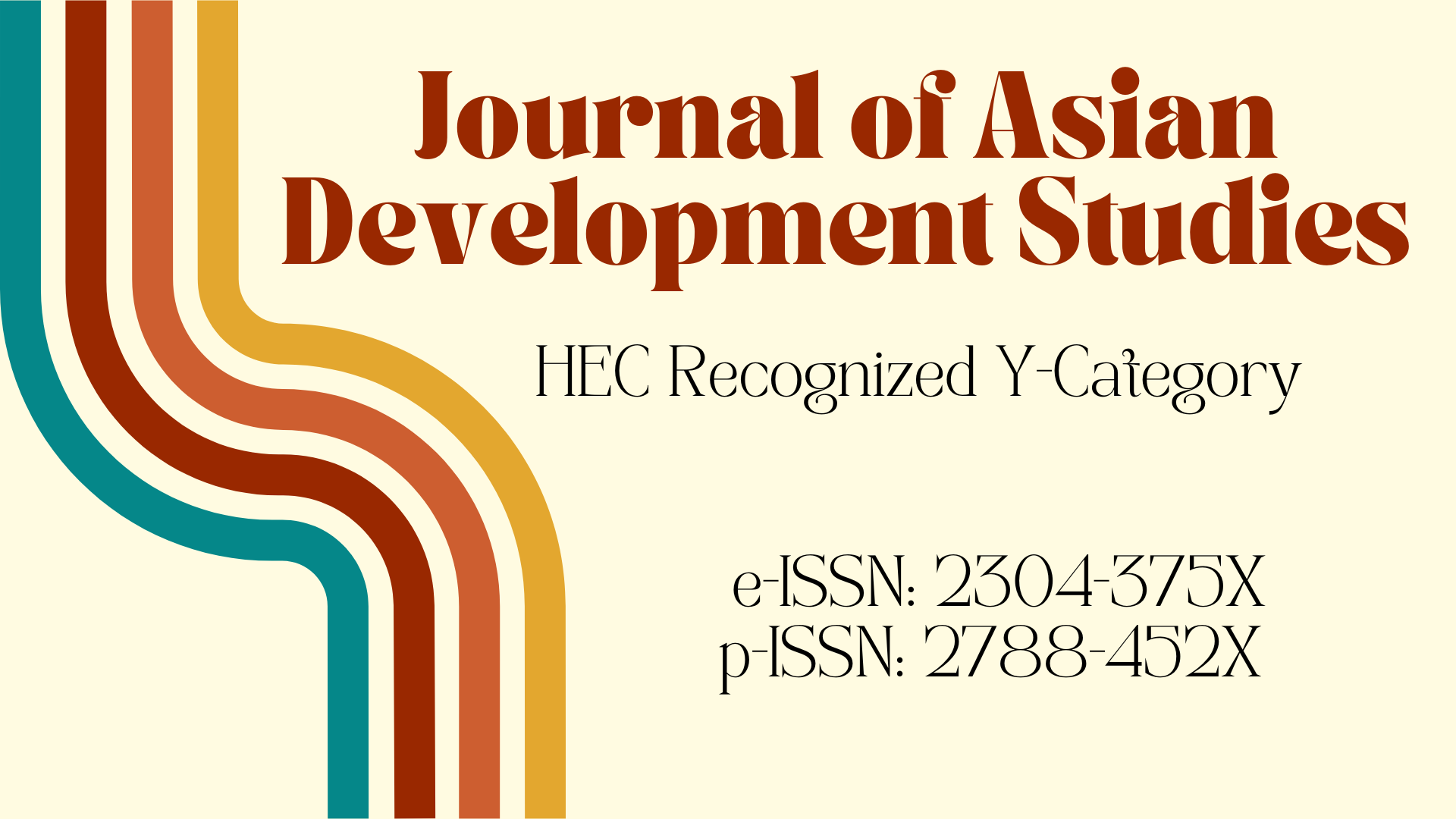Impact of Energy Consumption and Economic Growth on Environmental Degradation: Evidence from South Asian Countries
DOI:
https://doi.org/10.62345/jads.2025.14.1.24Keywords:
CO2 Emissions, Economic Growth, Energy ConsumptionAbstract
Environmental sustainability is one of the major concerns of countries worldwide regarding low carbon emissions. This study aims to investigate the impact of economic growth and energy consumption (EC) on carbon dioxide emission by utilizing panel methods. This study uses panel data from four selected South Asian countries for 30 years, from 1991 to 2020. The econometrics approach cointegration test (Pedroni, Kao, and Fisher), Fully Modified Ordinary Least Square (FMOLS), and Dynamic Ordinary Least Square (DOLS) used to examine long-run association and the impact of economic growth, EC (energy consumption), trade openness and urban population on carbon dioxide emission. The results of three-panel cointegration techniques, such as (Pedroni, Kao, and Fisher, confirm that all study variables are cointegrated. The study results show that all variables, such as energy consumption, economic growth, trade openness, and urban population, positively and statistically significantly impact CO2 emissions. The study results help all relevant stakeholders, including environmental scientists, professionals, and educators, make appropriate ecological sustainability policies, namely reducing carbon dioxide emissions in the study economy.
Downloads
Downloads
Published
Issue
Section
License

This work is licensed under a Creative Commons Attribution 4.0 International License.
License Terms
All articles published by Centre for Research on Poverty and Attitude are made immediately available worldwide under an open access license. This means:
- everyone has free and unlimited access to the full-text of all articles published in Centre for Research on Poverty and Attitude's journals;
- everyone is free to re-use the published material if proper accreditation/citation of the original publication is given.




